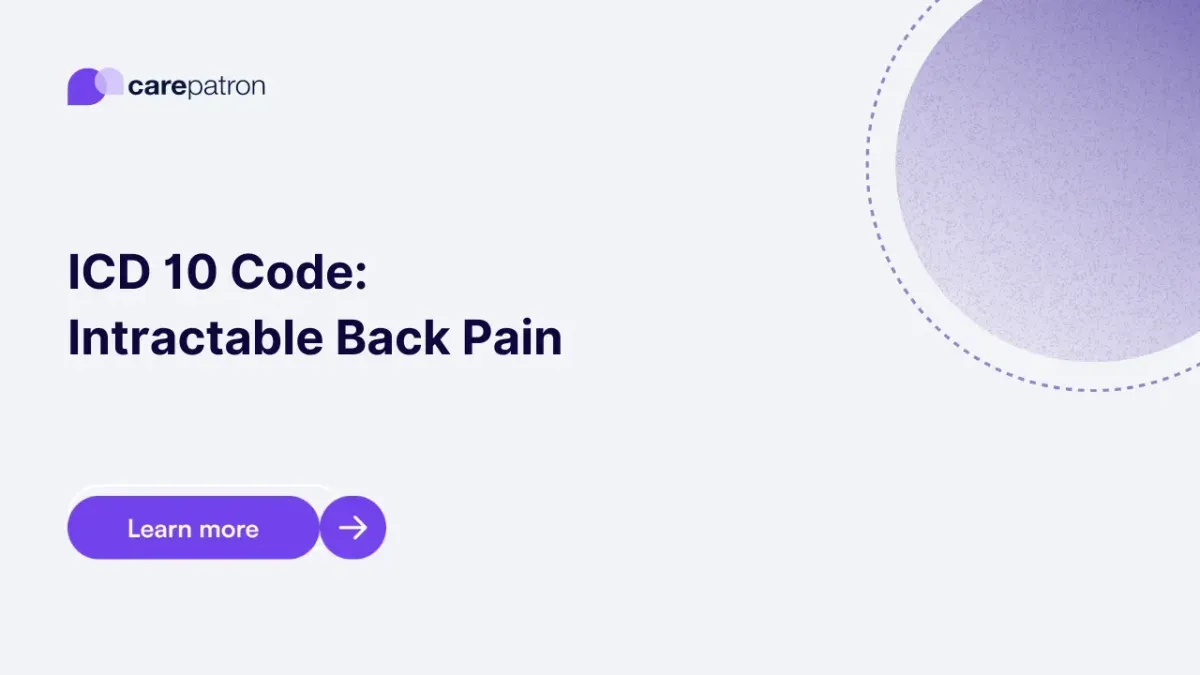
Intractable Back Pain ICD-10-CM Codes
Learn how to code intractable back pain in ICD-10-CM. M54.9 is the billable code for chronic, generalized back pain unresponsive to treatment.
Use Code
Commonly asked questions
Intractable back pain can result from unresolved conditions like intervertebral disc degeneration, spinal nerve compression, or chronic musculoskeletal disorders that resist treatment. Psychological factors, such as failed surgical interventions or prolonged inflammation in the lumbar or lumbosacral region, may also influence it.
Intractable pain is defined as severe, persistent pain that lasts longer than three months and does not improve with conventional medical treatments. It often disrupts daily function and may require multidisciplinary pain management approaches.
Managing intractable pain involves a combination of treatments such as physical therapy, medications, behavioral therapy, interventional procedures, or spinal cord stimulation. A tailored plan is essential to address both physical and psychological components of the pain.
EHR and practice management software
Get started for free
*No credit card required
Free
$0/usd
Unlimited clients
Telehealth
1GB of storage
Client portal text
Automated billing and online payments
